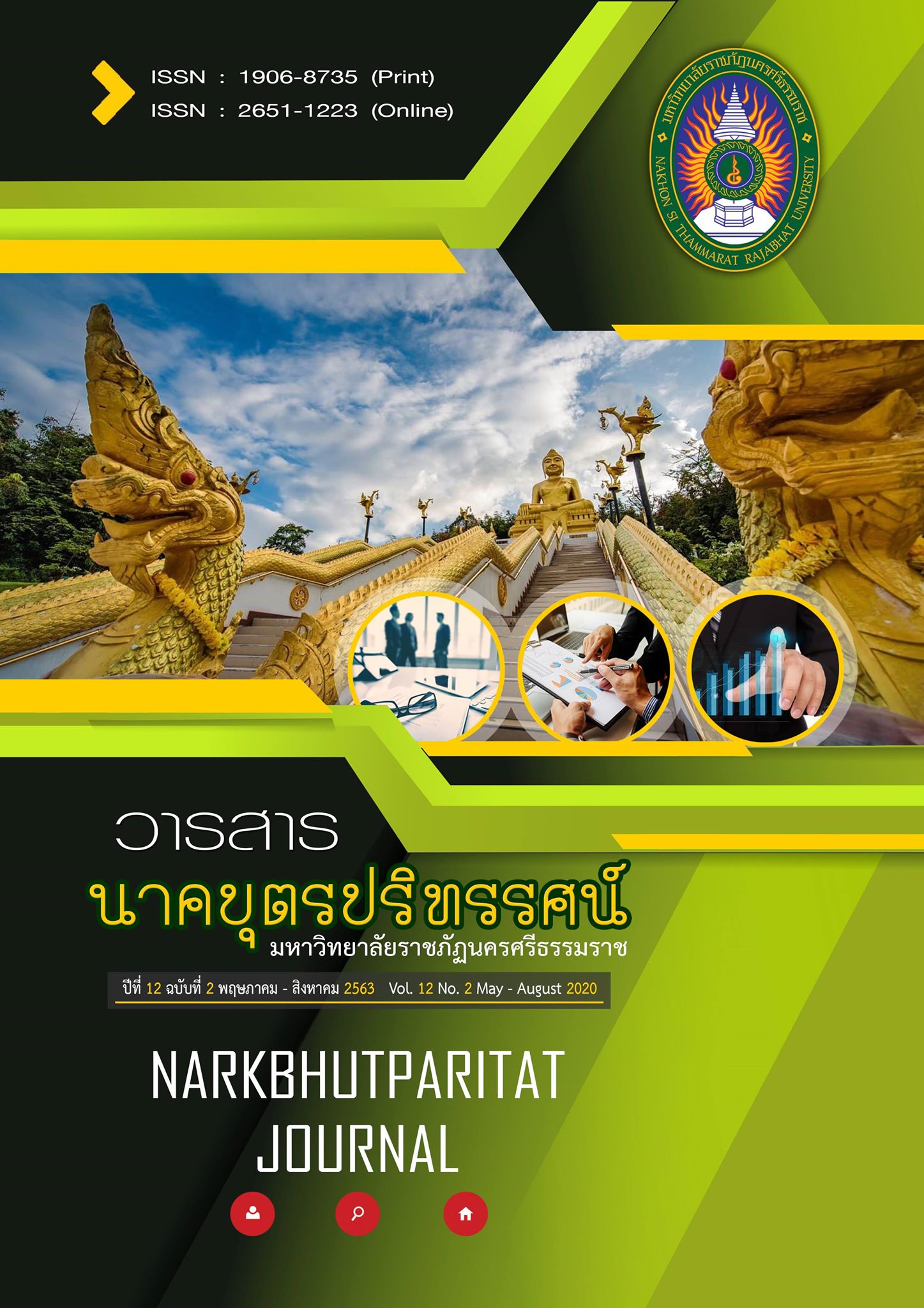A STUDY OF UNDERGRADUATE STUDENTS AND INSTRUCTORS’ ADOPTION OF TECHNOLOGICAL INNOVATION IN M-LEARNING AT HIGHER EDUCATION IN BATTAMBANG, CAMBODIA
Main Article Content
บทคัดย่อ
M-Learning is the new tool for education in the 21st century. The objective of this study is to figure out the undergraduate students and instructors’ adoption of technological innovation in M-Learning at higher education in Battambang, Cambodia regarding level of adoption, behavior, readiness and attitude and availability and accessibility of technological innovation. There are 359 undergraduate students and 40 instructors joined this survey research. The results show that undergraduate students’ adoption of technological innovation in M-Learning is at fair level with no significant difference regarding gender, type of university, and academic year of study. Similarly, the instructors’ adoption of technological innovation in M-Learning is at good level. They have positive behavior, attitude and readiness while technological innovation is fairly available and accessible. This useful research finding may provide key information to policy makers and educators for developing strategy towards the adoption of M-Learning for higher education in developing countries.
Article Details
เอกสารอ้างอิง
Abu-Al-Aish, A. (2014). Toward mobile learning deployment in higher education. N.p.: Brunel University, School of Information Systems, Computing and Mathematics.
Ajzen, I., and Fishbein, M. (1980). Understanding Attitudes and Predicting Social Behavior. NJ: Prentice Hall, Englewood Cliffs, NJ.
Al-Lozi, E., Al-Hujran, O., and Al-Debei, M. (2014). Get Ready to Mobile Learning: Examining Factors Affecting College Students’ Behavioral Intentions to Use M-Learning in Saudi Arabia. Jordan Journal of Business Administration, 10(1), 111–128. Retrieved 2019, Jan 20, from https://doi.org/10.12816/0026186.
Al-Shahrani, H. (2016). Investigating the determinants of mobile learning acceptance in higher education in Saudi Arabia. Northern Illinois University. Retrieved 2019, Jan 20, from http://commons.lib.niu.edu/handle/10843/18618.
Cheon J., Lee S., Crooks S., and Song J. (2012). An Investigation of Mobile Learning Readiness in Higher Education Based on the Theory of Planned Behavior. Computers & Education, 59, 1054–1064.
Davies, J., Foxall, G. R., and Pallister, J. (2002). Beyond the Intention–Behaviour Mythology: An Integrated Model of Recycling. Marketing Theory, 2(1), 29–113. Retrieved 2019, Jan 20, from https://doi.org/10.1177/1470593102002001645.
Educause. (2018). Mobile Learning. Retrieved 2019, Jan 20, from
https://library.educause.edu/topics/teaching-and- learning/mobile-learning.
Fitts, T. H. (2015). Teacher implementation of mobile learning initiative at a sixth grade school: a phenomenological study. N.p.: Liberty University.
Heng, K. (2012). College Student Involvement in English Language Learning in Cambodia. Journal of International Development and Cooperation, 19, 11.
Khieng, S., Srinivasa, M., and Chhem, R. (2015). Cambodia Education 2015 Employment and Empowerment. Retrieved 2019, Jan 20, from . https://cdri.org.kh/wp-
content/uploads/FP2-edu2015-e.pdf
Lan, Q., Li, W., Chen, X., Sleem, A. M., and Farrukh, K. (2016). Design and implementation of a novel mobile-optimized remote laboratory platform for mobile learning. Retrieved 2019, Jan 20, from https://doi.org/10.13140/RG.2.2.28230.57928
Mutono, A. (2016). An investigation of Mobile learning readiness for Post-School Education and Training in South Africa using the Technology Acceptance model. International Journal of Education and Research. 4, 25-34.
Oakley, G., Pegrum, M., & Kheang, T. (2018). An evaluation of the integration of m-learning in Total Approach for Children Plus (TRAC+): Enhancing literacy of early grade students in Cambodia. World Vision Press. Retrieved 2019, Jan 20, from
https://allchildrenreading.org/wordpress/wp-content/uploads/2018/05/TRAC-Report-Web.pdf.
Phong, K., Srou, L., and Sola, J. (2016). Research Report: Phones and Internet in Cambodia 2016. N.p.: Asia Foundation.
Pou, S., Sok, S., Courtney, W., Alice, B., Kevin, N., and Khoun, T. (2016). Doing Research in Cambodia: Making Models that Build Capacity. N.p.: Cambodian Institute for Cooperation and Peace.
Rao, T. (2017). Factors critical to the organisational adoption of artificial intelligence: A South African perspective. N.p.: University of Pretoria.
Rogers, E. M. (1983). Diffusion of innovations (3rd ed). N.p.: Free Press.
_______. (2003). Diffusion of innovations (5th ed). N.p.: Free Press.
UNESCO. (2015). Education 2030 Incheon Declaration and Framework for Action. Retrieved 2019, Jan 20, from http://uis.unesco.org/sites/default/files/documents/education-2030-incheon-framework-for-action-implementation-ofsdg4-2016-en_2.pdf
Van Akkeren J. and Cavaye, A., (1999). Small Business IT Market Readiness and Overcoming Their Fear Factor. Proceedings of the 10th Australiasian Conference on Information Systems (ACIS99, p1071-1083). Wellington: New Zealand.
Vavoula, G., and Sharples, M. (2002). KLeOS: a personal, mobile, knowledge and learning Organisation system. N.p.: n.p. (In Thai)
Yann, S. (2017). A study of Students’ and ICT Teachers’ Perception on Implementation for ICT for Teaching and Learning in Upper Secondary School in Phnom Penh, Cambodia. Surin: Surindra Rajabhat University. (In Thai)
Zhan, L. (2011). A Status Research on Mobile Learning of College Students. ProQuest Dissertations Publishing.


